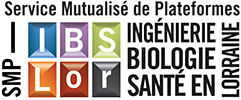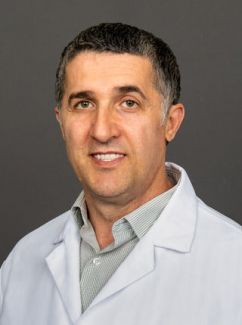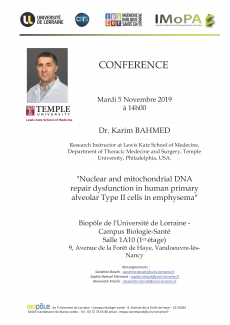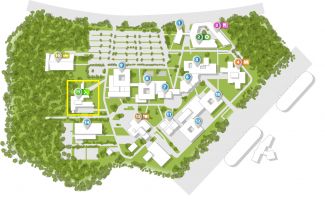
L'UMS2008 IBSLor et l'UMR7365 IMoPA accueillent le Dr Karim Bahmed (Temple University, Philadelphia), spécialiste des altérations oxydatives de l'ADN dans les maladies pulmonaires. Venez nombreux assister à sa conférence le mardi 5 novembre 2019 à 14H00 au Biopôle (Salle 1A10 - 1er étage) !
Dr Karim BAHMED (Temple University, Philadelphia), donnera une conférence intitulée : "Nuclear and mitochondrial DNA repair dysfunction in human primary alveolar Type II cells in emphysema".
Sujet de ses recherches : "Cellular DNA is most frequently targeted by oxidative stress which may lead to DNA lesions. Continuous oxidative DNA damage can contribute to the pathophysiology of various lung diseases such as Emphysema and Idiopathic Pulmonary Fibrosis (IPF). Emphysema is one of the diseases that comprise the term COPD (chronic obstructive pulmonary disease) and consists of a unique pattern of alveolar wall destruction. IPF is characterized by a progressive decline in lung function due to scarring of lung tissue. Emphysema and IPF are not curable. We isolate primary alveolar type II (ATII) cells from control lungs and excess tissue obtained from lung transplants of patients with emphysema and IPF to study their injury. Control ATII cells use different mechanisms to repair DNA damage to preserve their genomic integrity. However, if not repaired, DNA damage may lead to double strand breaks, chromosomal rearrangement, and genetic instability, which causes cell death and lung tissue damage. We are particularly interested in understanding the mechanisms of higher DNA damage and lower DNA repair in ATII cells in emphysema and IPF in comparison with controls. Our research focuses on the role of selected genes and proteins involved in these processes and identified by RNA sequencing and mass spectrometry analysis performed in these ATII cells. We are using in vitro, ex vivo and in vivo approaches to elucidate the function of these molecules in the maintenance of the genomic DNA and cellular survival. Our goal is to understand their role in ATII cell injury in emphysema and IPF, which may lead to novel potential therapeutic approaches".
Ce séminaire est ouvert à tous.
Pour plus d'informations, vous pouvez contacter :
- Sandrine BOSCHI : sandrine [mfundo] boschi [chizindikiro] univ-lorraine [mfundo] fr
- Sophie RAHUEL-CLERMONT : sophie [mfundo] rahuel [chizindikiro] univ-lorraine [mfundo] fr
- Alexandre KRIZNIK : alexandre [mfundo] kriznik [chizindikiro] univ-lorraine [mfundo] fr
Pour en savoir plus :





